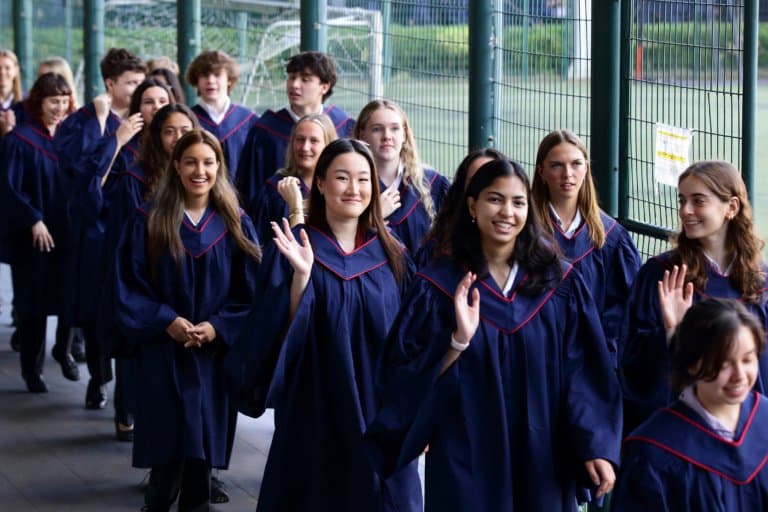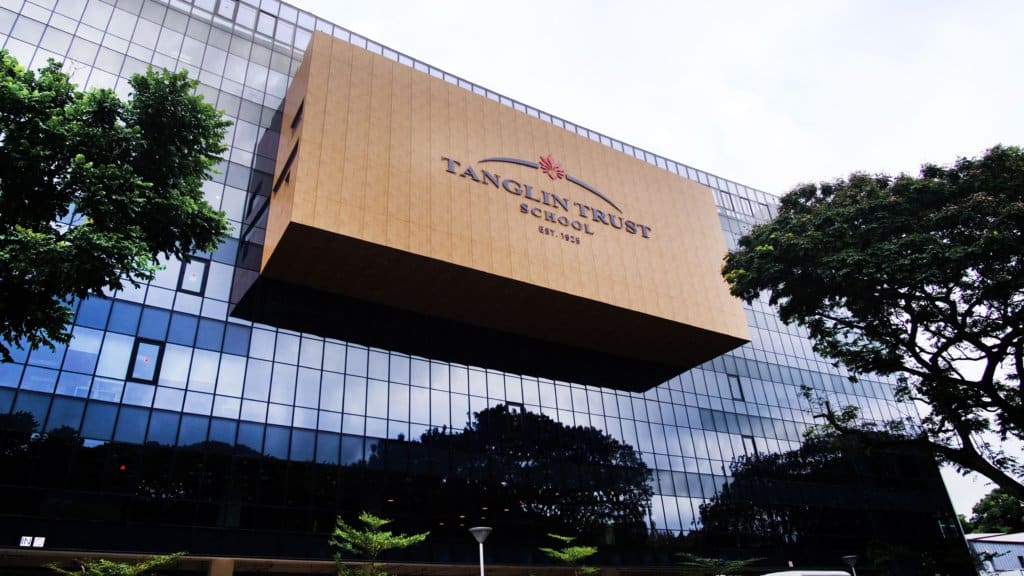
A British education is, by most standards, incomparable. Outside of grounding students with a strong grasp of the English language and widening opportunities for university-level pursuits, a British education fosters creativity, builds confidence, and helps students evolve into global citizens.
British international schools offer a perfect mix. They typically involve a healthy combination of academic, sporting and arts-related activities within any one curriculum. Younger students tend to enjoy a greater balance, allowing each child to discover their passions and interests from the get-go. This ensures that by the time they reach their exam-oriented years, students have a firm understanding of their likes, dislikes, strengths and weaknesses.
That’s not to distract from the excellent reputation of British examination systems. The IGCSEs and A Levels are some of the world’s most respected qualifications. Similarly, many British international schools in Asia are beginning to offer the International Baccalaureate (IB): a dynamic and all-rounded diploma programme that helps students find their strengths academically. Most importantly, the IB specifically employs an international curriculum — preparing students to take on challenges and work in an increasingly globalised world.
Here are some of Asia’s best British Independent schools for your child:
Tanglin Trust School

Source: Tanglin Trust School
The benefits of an IB versus an A Levels qualification have long been debated. When choosing a school, parents may be comfortable with the established reputation of the A Levels, which provides a deep study of three to four subjects a student may want to specialise in at university. By contrast, the IB offers a more varied curriculum that may be preferred by students who are more active or community-oriented.
Tanglin Trust School is the only international school in Singapore to offer students the choice of studying A Levels or IB in Sixth Form allowing students to select the pathway best suited to them. Tanglin’s calibre is maintained across both qualifications, too. This year, the school’s IB cohort achieved its highest-ever average Diploma score of 41.4 points, scoring more than 9.4 points above the world average. Its A Levels results are just as impressive; 69% of all grades were an A* or A compared to 36.4% in England. Students at lower levels are just as talented: 85% of all (I)GCSE students at Tanglin achieved an A* to A, more than twice the percentage in England.
As a not-for-profit school, all school fees are dedicated to maintaining this outstanding standard of education for its students. Tanglin’s Infant, Junior and Senior schools are regularly inspected every three years according to Ofsted British Schools Overseas (BSO) standards, in which it repeatedly achieves “outstanding”, the highest possible grade.
Being the oldest British international school in Southeast Asia, with 97 years of expertise, Tanglin continues to set the standard for high-quality British education in Asia.
Learn more about Tanglin Trust School
Marlborough College Malaysia

At Marlborough College Malaysia, pupils get to participate in Outreach activities which hone their sense of social responsibility and help them to put their thoughts into action. Source: Marlborough College Malaysia
Marlborough College Malaysia (MCM) provides a British education tailored to stimulate, challenge and support students in discovering and developing their talents in various areas.
Set on a safe and spacious 90-acre estate, Marlborough College Malaysia (MCM) is guided by principles of compassion, companionship and conversation. Here, students join the faculty in pursuing questions, not simply answers; in discovering ideas, not merely facts; and in appreciating the journey, not solely the destination.
Highly rigorous academics, a caring community, qualified teachers, student-focused learning, and college-preparatory courses — these are the features that ensure student success at MCM. Academic programmes here offer students myriad opportunities and challenges in a supportive environment. The school’s IGCSEs and International Baccalaureate Diploma Programme opens the doors to many of the world’s finest universities.
What sets the college apart is its range of co-curricular opportunities. From sport to music and art, each and all provide challenge and comfort as a critical part of a meaningful holistic education. They develop a pupil’s understanding of global issues and their responsibilities as global citizens. “The provision of co-curricular activities is a real strength of the college,” according to COBIS Report 2021.
“With our shared DNA and close links with Marlborough UK, we value and instil breadth of experience, intellectual rigour, creative joy and sporting excellence,” says Alan Stevens
Master of Marlborough College Malaysia. MCM students engage with a broad range of activities outside the classroom — from sports, music and art to drama, activities, outreach and educational trips.
British International School Ho Chi Minh City
Established in 1997, the British International School Ho Chi Minh City has grown to become one of the largest international language schools in Vietnam. Students from age two to 18 are welcome at its campus where over 50 nationalities are represented. Average class size is 18 — the student to teacher ratio at the primary level is 21:2, secondary is 11:1.

BIS HCMC’s partnership with the Juilliard School enhances the learning of performing arts. Source: British International School Ho Chi Minh City
BIS HCMC was the first school in Vietnam to be inspected and approved by the Association of British Schools Overseas. It is also officially awarded full accreditation status through the prestigious Council of International Schools (CIS) and a registered centre for the Cambridge International Examinations (CIE).
The school’s partnership with the Juilliard School enhances the learning of performing arts at BIS HCMC. Students get to explore core works of music, dance, and drama using teaching materials, creative activities, historical information, rehearsal strategies, and professional development — all designed by the prestigious conservatory.
BIS HCMC also collaborates with the world-renowned Massachusetts Institute of Technology (MIT) to provide a STEAM curriculum that tackles real-world challenges across the subjects of science, technology, engineering, art, and mathematics. This is how BIS HCMC students get to develop transferable skills such as flexibility, creativity, and communication.
“We value academic success highly, but it is also our belief that the all-round development of your child is just as important,” says principal Anthony Rowlands. “Our students are ambitious, our teaching teams are innovative and our school environment is dynamic, ensuring that the education on offer is amongst the very best available anywhere in the world.”
Rugby School Thailand

RST has achieved Beacon School Status for its boarding facilities. Source: Rugby School Thailand
Rugby School Thailand’s 80-acre campus is nestled in the majestic countryside of Thailand’s Eastern Seaboard near Pattaya, Chonburi. It is many miles away and many centuries younger than its 454-year-old sister school Rugby UK, yet still truly connected to it, using its experience to create the perfect blend of traditional values and a 21st century mindset at RST.
At RST, pupils follow a classic British curriculum. Sixth Formers take the A Level, based on a prescribed curriculum administered by examination boards in England. The goal at RST, however, goes beyond merely winning a place at university — it is to help pupils specialise in their chosen subjects, with courses structured around learning rather than assessment.
Here, the ethos is “the whole person, the whole point.” Each pupil strives for excellence, not just academically, but in sport, music, art, drama and co-curricular activities. Sports enthusiasts can excel in swimming, football, basketball, volleyball, badminton or touch rugby. Art prodigies express themselves through drama, performing arts, and more.
In short, they are discovering their calling and RST offers the space, facilities and education for them to do so. At the state-of-the-art campus — the work of top architects and designers just 1.5 hours southeast of Bangkok and 20 minutes east of Pattaya — pupils play on the rolling hillside while taking in fresh air. They study by lakes, and return home to comfortable, fully-equipped boarding houses at the end of every day. It’s the perfect blend of exciting and tranquil — making it an ideal experience for any growing student.
*Some of the Institutions featured in this article are commercial partners of Study International







